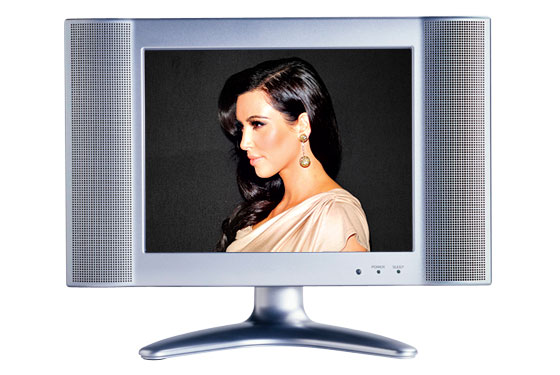
There are reality shows set in foreign deserts and on the decks of Alaskan frigates and amid the industrial mixers of gourmet cupcakeries, but over time, the series have taken on a predominant backdrop. You can probably picture it: The identikit mini-manses and the vast living rooms and gleaming kitchens within. The multiple garages housing SUVs that carry our heroes on their strip-mall errands. The empty strip-mall restaurants that become extravagantly air-conditioned OK Corrals when producer-mandated clear-the-air lunches degenerate into Chardonnay-powered tirade-exchanges.
Though this shrieking sprawlscape is not his preferred haunt, the celebrity urbanist Richard Florida will admit to occasionally cruising reality TV’s endless subdevelopments. Also, the author of The Rise of the Creative Class and The Great Reset watches the Today show while he’s working out, and “when it changes over to Hoda and Kathie Lee, it’s suddenly all about these people on reality shows, so I hear about it there.” What he’s seen has led him to develop a working theory about the genre. It’s not just that a lot of the shows are set in suburbia—suburban life actually creates the appetite for them. “Reality TV (from the Kardashians to the Jersey Shore) is the product of isolation & sprawl” is how he put it when floating the notion via Twitter (tweets being the new white paper).
It was a jarring encounter with Kim and Khloe Inc. that first gave him this idea. “I was sitting in a hotel room in New York City; my wife was out. And here comes, I don’t know, The Kardashians Invade New York, or whatever it’s called,” he says. “And they made New York look like a mall!” Seeing New York flattened “into Orange County” by the Kardashians’ SUV-chauffeured, credit-card-powered sack of Gotham led Florida to expand his signature critique of atomizing sprawl to include JWoww, NeNe, and the other denizens of reality television’s Monster Island.
But Florida says he’s not trying to stuff burb-based reality TV into a cities=good, suburbs=bad rubric. Instead, he’s tracing a continuum that looks something like: sprawl+isolation=the substitution of televised, crazy-eyed pods of frenemies for actual human communities. “The knee-jerk reaction to reality TV is that it’s dumbification,” Florida says. “But it’s not, and the people watching aren’t dumb. They’re just looking for connection.” Florida uses Cambridge University psychologist Peter J. Rentfrow’s concept of communal consumers to describe reality junkies. “These are people who want stories about people and who used to rely on gossip, or on the little mini-dramas in their community,” he says. “And when you’re isolated in the suburbs, you don’t have that.”
The prospect of having to settle for the sniping of a Real Housewife of Beverly Hills (which has taken on darker overtones following the suicide of a cast member’s estranged husband) in place of a real drama-dishing housewife from down the block is pretty bleak. But such, Florida argues, are the results of picket-fence-bounded displacement. “Think of it this way,” says the New Jersey–bred Florida, setting up a comparison from his own upbringing. “My parents, growing up in Newark, had no need for these types of stories. They could get all the interaction and the drama they needed right there in the neighborhood.”
Have good intel? Send tips to intel@nymag.com.